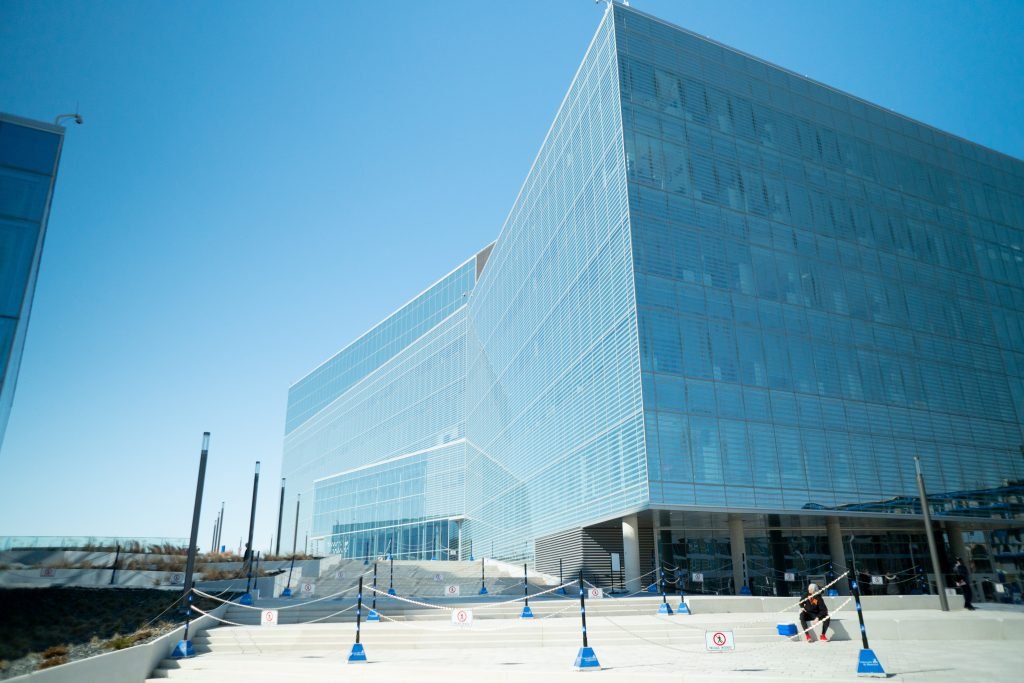Office de consultation publique de Montréal issues report on MIL campus

On Mar. 22, the Office de consultation publique de Montréal (OCPM), the independent body which oversees public consultation mandates assigned by the City of Montreal, issued a report on the Université de Montréal MIL campus and a list of recommendations.
Among the recommendations, the report specifically outlines how the project could better address the realities of neighbouring Park Extension in a bid to mitigate the negative effects the campus is having on the gentrification of the neighbourhood.
“The commission recommends that the Université de Montréal explore, together with the local communities, ways to minimize the negative impacts induced by the development of its campus,” read the report.
Commission president Danielle Casara recommended the implementation of a “Marshall Plan” to protect Park Extension and its residents, referring to the reconstruction and investment effort made in Europe after the Second World War.
Favourable to modifications
Formerly a railway marshalling yard to the south of Park Extension, the area was set for redevelopment in 2005 in a bid to revitalize an unused industrial area, promote education in Montreal and create positive urban, economic and social effects in the neighbouring sectors, read the report.
Starting in the fall of 2021, a public consultation effort was held to collect the opinion of the population before going forward with new regulation modifications.
These modifications would allow for the construction of an elementary school, a centre for Innovation in Digital Intelligence by the University of Montreal and the rezoning of a tract of land to bring it back under the control of the Outremont borough.
While the commission gave a green light to the modifications, they included several recommendations to better protect the interest of residents and local stakeholders.

Search for positive outcomes
The report outlines “concerns about the safety of citizens, especially that of the children of the new school, the already difficult mobility in this sector, the deficient connection with neighbouring districts, the lack of green spaces and the potential for gentrification in adjacent areas.”
To better protect Park Extension, the commission recommended the City of Montreal and the Université de Montréal put in place tangible mechanisms to address the gentrification the project is causing.
“The commission considers it particularly important that the opportunities resulting from significant public efforts and investments can benefit all populations, by virtue of a principle of equity and social inclusion,” read the report.
Although the commission recognizes the positive outcomes the construction of higher education institutions has on Montreal, they stress that these positive effects must be shared equally.
If development is accompanied by poorly controlled gentrification which favours a certain social group to the exclusion of others, the results become less positive, wrote the OCPM.
“The commission considers it particularly important that the opportunities resulting from significant public efforts and investments can benefit all populations, by virtue of a principle of equity and social inclusion,”
Recommendations
Among other recommendations, the commission took particular care to highlight the special situation of Park Extension in relation to the MIL campus, explaining that socio-economic realities on the ground made it particularly vulnerable.
The commission, therefore, encouraged stakeholders and elected officials to act swiftly on issues such as increasing rent prices and the relocation of residents, while creating better government mechanisms between the municipal and borough levels.
“The improvement of the quality of housing for the benefit of the current populations of the district, in particular by upgrading the housing stock,” is one of the OCPMs’ recommendations.
They also call for the protection and enhancement of the identity of the district in its cultural, economic, social and heritage dimensions, while also ensuring the development of community infrastructure which has been lacking in Park Extension.
“If it is understood that the identity of a neighbourhood is a dynamic thing, it is the entire Montreal community that loses out when the diversity of experiences in the City gives way to the homogenization of lifestyles,” read the report.










